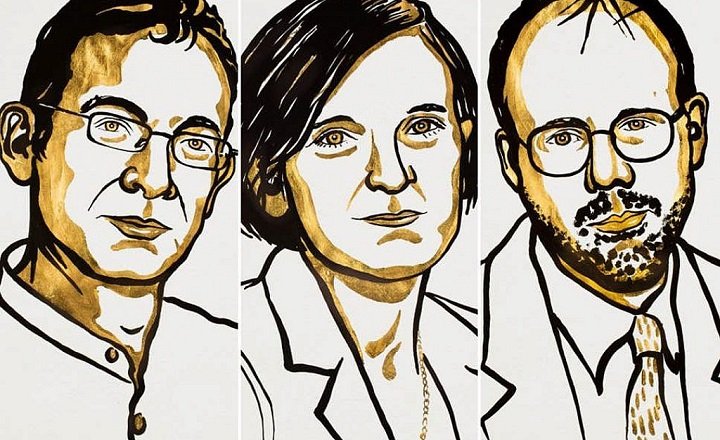A Nobel Prize to Three Fighters Against Poverty

This year's Nobel Prize for Economics rewards the efforts of development economics in the fight against global poverty. Abhijit Vinayak Banerjee, Esther Duflo and Michael Robert Kremer have introduced an experimental approach that has transformed the way development economics is done and has been adopted by scholars around the world.
Thanks to their contribution, development economics adopts the same approach as medicine when assessing the effectiveness of a drug. An intervention to reduce poverty, before being adopted on a large scale, is introduced on an experimental basis in small realities, identifying a population with homogeneous characteristics and then treating only a part (chosen by a lottery), so as to be able to compare the results of those who have been subjected to treatment and those who have not been, explains Diego Ubfal, development economist at Bocconi.
You can watch Diego's comment at this link.
Among the many merits of Banerjee and Duflo there is also the establishment at MIT of the Abdul Latif Jameel Poverty Action Lab (J-PAL) to apply the method on a large scale. The laboratory now has about 200 scholars, some of them from Bocconi, and inspired the establishment of the Laboratory for Effective Anti-poverty Policies (LEAP) at Bocconi.
The awarding of the Nobel Prize has great significance, explains Eliana La Ferrara, Scientific Director of LEAP, for three reasons: it reminds us that the fight against poverty must be at the center of attention; it makes the skeptics understand that every policy must be evidence-based, in order to allocate resources to those which have a scientific basis; it contrasts the image of the academy as an ivory tower, since the three winners have worked for decades in the field in developing countries, in collaboration with policy-makers and NGOs.
You can watch Eliana's comment at this link.